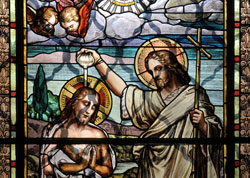Contributed by David Delaney, Salem, VA
Warm-up Questions
- What is your favorite place to just sit and relax? Think about a place where, once you get there, you are so comfortable that you just do not want to get up. Is it the couch in front of your TV? Or the inflatable float you lie on at the neighborhood pool in summer? Or a chair that could be anywhere, but because it’s at your best friend’s house, it’s your favorite spot in the world? Or the rock ledge on the hiking trail that overlooks the neighboring valley? Or the bed in your own room?
- What if the answer to the question had to be a person you love to be with rather than a place you like to be? Some people are at their most relaxed when they’re alone, but for others there are best friends who put them at ease and in whose presence they can be most completely themselves, wherever they are.
- Another way of asking the same question: To whom do you go to be renewed in energy, or to obtain trusted and wise advice, or to share very private secrets?
All of the feelings associated with such places and people contribute to the idea of what it means to “abide” in the sense that Jesus means it in John 15.
Grapes and Vines
In early 2012, the U.S. Department of Agriculture reported that California’s 2011 grape harvest was down more than 7% overall and as much as 17% in some key places like Sonoma Valley. That may not mean much until we realize that this represents between 250,000 and 500,000 tons of grapes – not pounds, tons. The reasons growers gave for the decreased yield were, as we might guess, things over which they had no control, primarily weather. There were a series of unexpected freezes in the early spring and an unusual amount of rain in late spring that weighed vines down and knocked the blooms off of their vines. That was followed by a cool summer and then more heavy rain during the harvest months of October and November, which caused entire fields of grapes to rot before they could be picked.
 One has to wonder just how delicate grape branches, blossoms, and fruits are if simple changes in weather can have such a dramatic effect on whether the fruit actually gets produced or not. Apparently they’re very delicate!
One has to wonder just how delicate grape branches, blossoms, and fruits are if simple changes in weather can have such a dramatic effect on whether the fruit actually gets produced or not. Apparently they’re very delicate!
Did Jesus have this in mind when he compared us to grapevine branches? Are we really that susceptible to being robbed of abundant life because of the changing conditions around us, things over which we have no control? That is undoubtedly a part of the story: For many of us, faith thrives when we are living and working in ideal conditions – a loving and gracious family, like-minded friends in school and in the church’s youth group, sturdy and lively worship with a generous dose of solid preaching, fulfilling opportunities to serve, and support during times of crisis. Who wouldn’t thrive in such an environment? And yet, if those factors change, are we destined to decline in our spiritual health? Can we still bear good fruit?
There’s another side to the image of the vine and the branches. Not all of California’s grape crop was negatively affected by the 2011 weather patterns. Some growers of heartier varieties of grapes reported that the fruit was actually some of the best they’ve ever had! Evidently the variety and quality of the vine make a huge difference. There is an important lesson. In California, some grape branches attached to more vulnerable types of vines lost their fruit-bearing capabilities and in some cases died altogether. But those attached to more resilient varieties of vines not only survived the weather but bore better fruit than expected.
We are not like grape branches in one important sense: we can self-detach from a vine and latch on to something else that we suspect might provide a better home. This is the reason Jesus could give the unusual instruction to his disciples to remain attached to him like a branch is connected to a vine. He wanted to make sure we understood how vulnerable we can be to the changes and challenges going on around us. So there is a difference between just attaching to any vine that may be out there promising to sustain us through rough weather and staying attached to Jesus, who is not just any vine, but the sturdiest and heartiest of all vines, the true life-giver.
Discussion Questions
- What does it mean to “bear fruit”? What kind of fruit are we, the branches of the vine, expected to bear?
- Outside of this section, the word “fruit” only occurs twice in the Gospel of John, but students of scripture over the centuries have often connected this passage with one from another New Testament writer, Paul, who speaks of “the fruit of the Spirit” in Galatians 5:22-23. What do we learn from that passage that helps us understand the experience that Jesus intends for us?
Scripture Texts (NRSV) for Sunday, May 6, 2012 (Fifth Sunday of Easter)
(Text links are to Oremus Bible Browser. Oremus Bible Browser is not affiliated with or supported by the Evangelical Lutheran Church in America. You can find the calendar of readings for Year C at Lectionary Readings.)
For lectionary humor and insight, check the weekly comic Agnus Day.
Gospel Reflection
Whenever we come across passages of scripture that set up scenarios of success and failure in the life of faith, we always run the risk of turning the good news of God’s saving love for us back into a law that discourages and depresses us or a system that supposedly lays out a formula for making God happy and assuring our salvation. In this passage that tendency is enhanced by the starkness with which the consequences of failing to abide are described: “He removes every branch in me that bears no fruit … Whoever does not abide in me is thrown away like a branch and withers; such branches are gathered, thrown into the fire, and burned.”
It sounds rather judgmental and threatening. If we are of a fearful conscience, this verse can leave us in terror that we will do it wrong and end up discarded. If on the other hand we trust in our own righteousness, the task of abiding just becomes one more goal that we check off our list of things we do to make God like us. In fact, however, this passage allows neither of those conclusions.
To abide means to remain connected to Jesus over time. It is being in relationship with him. It is not a matter of doing it right or wrong, but just being aware of how dearly he, the vine, is holding onto us, the branches. Furthermore, we must remember that the life that is promised does not flow from branches to the vine, but the other way – from the vine (Jesus) to the branches (us). All of these words about abiding in the vine do not describe a hoop we must jump through or a spiritual state for which we must strive, but a reality that is already true as he declares it – “you have already been cleansed (or pruned) by the word that I have spoken to you.” Perhaps we need to hang on to our list of synonyms for “abide” that was suggested above – “relax with me,” “dwell with me,” “remain with me,” “be still with me” – as a way of hearing the good news in this passage.
Discussion Questions
- Try to think of some words that could mean the same thing as “abide.” Some possibilities: remain, stay, live, relax, dwell, connect, rely on, stay close to, and others. So how does one “abide” in the Christ the vine? What faith practices do you engage in that help keep that relationship alive and flowing?
- What does Jesus mean by verse 7? – “If you abide in me, and my words abide in you, ask for whatever you wish, and it will be done for you.” That sounds like a pretty outlandish promise, given that I could wish for all kinds of crazy things. But this is the second time he has said it (see 14:13-14)! How does this work then? Can it be that if we are abiding in Jesus, our lives and words, including our very wishes and desires, are so completely transformed by him that we can indeed ask for whatever we wish because our wishes will at that point be so aligned with his own?
- In chapters 13 and 14, the disciples interrupt Jesus quite a bit with their questions. What question would you ask Jesus if you could interrupt him in the middle of this chapter?
- This instruction of Jesus to his disciples comes in the very middle of a much longer conversation during The Last Supper that runs all the way from chapter 13 through chapter 17, covers a huge number of topics and even includes a lengthy prayer. If you skim through those five chapters (and it helps if you have a Bible with paragraph titles!), what sorts of themes do you see? What kinds of things are repeated several times? How do they relate to each other?
- John 15:1 is part of a set of “I am” sayings in the gospel – 6:35; 8:12; 10:9; 10:11; 11:25; 14:6; and 15:1. Each one says something different about who Jesus is and they culminate in one more instance of “I am” later in the gospel, 18:5. As you look at each of these passages and the titles that Jesus gives himself, which of them strikes you as the most important for your life of faith? What dimension of Jesus’ connection to his followers resonates the most with your life right now?
Activity Suggestions
- Locate a piece of dried grape vine and, depending on the size, start adding names of people in your congregation or youth group, either to the leaves if they are still attached, or even on pieces of paper. Then put the vine somewhere where it can serve as a reminder of your constant connection to Christ and your common connection to others.
- In response to verse 7, use index cards to write things down that someone abiding in the vine of Christ might ask of him. If it’s true that someone who is so connected to Jesus will find their desires for themselves and the world closely aligned with Jesus’ desires for them and the world, what would those things be? Use these cards as the content of your closing prayer for your study session.
Closing Prayer
Lord Jesus, we thank you for your life giving and life sustaining call to abide in you. Even as you reassure us day by day that our connection to you remains strong through your grace, feed us also on the life you give so that we may indeed bear good fruit in this world and so become your disciples. In your holy name we pray, Amen.




